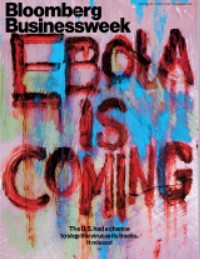Does it have to be over the top?
In the news, on the web, in the papers; every headline, most bylines and almost all comments are sensationalised these days. Nobody gives just a quote; they ‘slam’ someone. A new project is revolutionary. An upcoming leader is transformational. A new science study ‘changes everything’ we know about a subject.
Is this newfound zeal to over-emphasise, a result of the decrease in journalistic standards? Or is it a side effect of the change that the old world news agencies have to go through? As their revenues from the print media declined and they were forced to compete for clicks and attention.

An obvious downside of this ‘headline race’ is the eventual disappointment of the reader after going through the news piece or the article. The jaw-dropping reveal that was promised turns out to be just as underwhelming as the ending of HIMYM. But let’s be real, who even reads the article. The headline has all the information we need. Most people are not wrong in this assumption with content farms churning out posts with no further information and occupying Google search’s front page. But the one thing we neglect is that authors don’t get to choose the headline for their article. It is in the hands of the editor who can portray a neutral, well-balanced article as a slam dunk piece for whichever side he prefers. So we can cut the authors some slack, but they must know better than to write for such publications.
The personal cost
Still, it is the end-user who suffers. We have to deal with the next big thing or the upcoming scoop. There is no calm, relaxing day with mundane updates. Constantly dealing with these superlatives makes us numb to the actual big moments of our life. When we are flooded with news that is over the top, our own problems seem insignificant compared to them. For when France/Europe had the ‘biggest’ draw-down with the USA this week1 (who even remembers the world wars), how could your falling out with your friend be of any significance?
Still, it is the end-user who suffers. We have to deal with the next big thing or the upcoming scoop. There is no calm, relaxing day with mundane updates. Constantly dealing with these superlatives makes us numb to the actual big moments of our life. When we are flooded with news that is over the top, our own problems seem insignificant compared to them. For when France/Europe had the ‘biggest’ draw-down with the USA this week1(who even remembers the world wars), how could your falling out with your friend be of any significance?

The core reason for this strategy is that it works. People are drawn to catchy headlines. Just changing the title of an article could lead to a hundred fold increase in the number of views. This might be good for an obscure science publication with a novel result that it wants to publish. The question of when sensationalism is okay, like any other choice, comes down to morality versus financial gain. Editors need to keep into account that what might be beneficial in the short run may not be a sustainable business model. As can be seen from the eventual shutdown of the snarky gossip site, Gawker2. There is no free lunch and a lack of balance will have consequences.
Thoughts
Finally, people are a product of their times. Soon we will learn to cope up with sensational news or neglect it entirely. The real worry is what happens next. What will be the next means to get the attention of the reader when even the hype won’t do it. When people have to look into some old English lexicon to find the meaning of FOMO. Until such a time, we will keep getting news about what Saif’s third child had for lunch and the asteroid NASA predicted would hit earth in a decade.





Comments